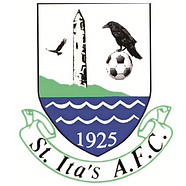For young soccer players, nutrition is more than just eating right—it's about fuelling your body to meet the physical demands of training, games, and recovery. This guide covers essential nutritional principles for teenage athletes, whether they play soccer exclusively or participate in multiple sports like GAA or rugby.
The Foundation of Nutrition: Health, Performance, and Recovery
A balanced diet is crucial for supporting growth, performance, and recovery. Macronutrients (carbohydrates, proteins, and fats) and hydration are key elements that help optimize body function.
Nutrient-dense foods promote:
Nutrient-dense foods promote:
- Growth and muscle development (protein)
- Energy for performance (carbohydrates and fats)
- Metabolism regulation (vitamins and minerals)
Macronutrients: = Energy, Recovery, and Growth
1. Carbohydrates: Fueling Performance
Think of carbs as your match-day fuel. Imagine your body as a sports car—it won’t get far on an empty tank. You don’t want to hit the 70th-minute wall, do you? They are the most important energy source, especially for high-intensity activities like soccer. They are stored as glycogen in muscles and the liver and are essential for sustained energy.
- Daily Recommendation: 5-10 grams per kilogram of body weight, depending on activity level.
- Importance: Studies, such as those cited by UEFA, emphasize that optimal carbohydrate intake improves energy during match play, reducing fatigue and enhancing performance.
- Pro Tip for Carbs: Plan your carb intake around your training schedule. More training? More carbs. Game day? Don’t skip the carbs—your energy levels depend on it.
Sources of Carbohydrates:
- Whole grains (brown rice, quinoa, whole wheat bread)
- Fruits (bananas, apples, berries)
- Vegetables (sweet potatoes, peas, carrots)
- Legumes (beans, lentils)
2. Protein: Building and Repairing Muscles
Every tackle, sprint, or shot breaks down muscle fibres. Protein is your recovery crew, stepping in to rebuild and strengthen. Think of it as your muscle maintenance team, keeping you game-ready. Protein is critical for muscle repair and growth, especially for athletes in development.
- Daily Recommendation: 1.2-1.7 upper limit of 2.2 grams per kilogram of body weight spread throughout the day.
- Example: A 45kg player needs about 76g of protein daily—think 100g chicken breast, a couple of eggs, and a bowl of Greek yoghurt.
- Quick tip: Have a protein shake/milk and banana after the gym or training.
Sources of Protein:
- Lean meats (chicken, turkey)
- Fish (salmon, tuna)
- Eggs
- Dairy products (yoghurt, milk)
- Plant-based sources (tofu, beans)
3. Fats: Sustained Energy and Hormonal Support
Fats are essential for long-term energy, hormone production, and vitamin absorption. Teen athletes need healthy fats to support their growing bodies and maintain energy stores.
- Importance: Fats should comprise about 25-35% of total calories.
Sources of Healthy Fats:
- Avocados
- Nuts (almonds, walnuts)
- Seeds (chia seeds, flaxseeds)
- Olive oil
Hydration: A Key to Sustained Performance
Dehydration is the silent party crasher—sneaking in to ruin your game, slow your reactions, and leave you gasping like you just ran a marathon uphill. Hydration isn’t just about quenching your thirst. Think of it as oiling the engine. No oil? Expect squeaky joints, mental fog, and your coach yelling, 'Why is your sprint so slow today? Its crucial for maintaining performance, especially during high-intensity sports like soccer. Water is essential for cardiovascular function, muscle contraction, and body temperature regulation. Dehydration can reduce stamina, slower reaction times, and poor decision-making. Signs of dehydration include dark urine, dry mouth, and dizziness.
- Hydration Tips:
- Drink water regularly throughout the day.
- Consume sports drinks during long, intense training sessions to replenish electrolytes. ( Mix in some fruit juice or Mi Wadi)
- Weigh yourself before and after exercise—if you lose more than 1% of your body weight, you’re dehydrated.
- A 1999 study showed that dehydration negatively impacted sprinting and dribbling skills.
The Importance of Vitamins and Minerals
Key vitamins and minerals ensure optimal bodily functions and help athletes avoid injury and illness. Deficiencies can impair immune function, energy levels, and muscle function:
1. Iron: Essential for oxygen transport and immune function.
- Sources: Red meat, spinach, fortified cereals.
2. Calcium: Vital for bone health and muscle function.
- Sources: Dairy, leafy greens.
3. Vitamin D: Supports calcium absorption and immune function.
- Sources: Sunlight, fish, fortified foods.
4. Magnesium: Prevents muscle cramps and supports energy production.
- Sources: Nuts, seeds, whole grains.
Underfueling and Its Risks
Underfueling—failing to meet calorie needs—can lead to fatigue, reduced performance, and delayed growth. It can also cause injuries and weaken the immune system, especially for athletes training multiple times weekly. Elite youth academies have shown that athletes who fail to meet energy demands are at risk for Relative Energy Deficiency in Sports (RED-S)
Case Study: Elite Soccer Academies
Data from Premier League academies, such as Arsenal and Manchester City, demonstrate how tailored nutrition plans can enhance performance. In a 2019 study of Manchester City’s academy, players adhering to a customized nutrition plan improved sprint times by 15% and endurance by 12% over six weeks. Another study from Arsenal’s academy highlighted that proper hydration reduced injury rates by 20%
Recovery: The 4 R’s
Recovery nutrition is essential for muscle repair and replenishment after games and training. The “4 R’s” guide recovery:
- Rest: Allow your body time to recuperate.
- Refuel: Replenish glycogen stores with carbohydrates.
- Rehydrate: Replace fluids lost through sweat.
- Repair: Consume protein to support muscle repair
Check out below the links and tips below you can bring to your game on and off the pitch.
Pre-Game Snacks 1 Hour Before Kick-off
Consuming snacks that provide quick, easily digestible energy 1 hour before a match is important. Here are some ideal pre-game snack options:
- Banana with Peanut Butter: Offers quick-digesting carbs and protein for sustained energy.
- Rice Cakes with Honey: Light and easy to digest, with natural sugars for a fast energy boost.
- Low-fat yoghurt with Berries: A combination of protein and carbs to maintain energy levels.
- Smoothie: Blend banana, berries, and almond milk for a refreshing, hydrating pre-game snack.
- Oatmeal with Maple Syrup: Provides slow-releasing carbs to stabilise energy levels.
- Whole Grain Toast with Jam: A simple, easily digestible carb for quick energy.
Post-Game:
- Grilled Chicken with Quinoa and Veggies: A well-balanced meal high in protein and complex carbohydrates, perfect for muscle recovery and glycogen replenishment.
- Turkey sandwich with avocado on whole-grain bread.
- Chocolate milk for quick recovery and protein replenishment.
In conclusion, nutrition is critical in youth soccer players’ development and performance. Ensuring the right balance of macronutrients, hydration, and micronutrients can optimize growth, prevent injuries, and enhance game-day performance. Using case studies from elite academies, we see that these principles, when followed, lead to tangible improvements in athletic performance. Take small steps consistently to make a big impact and better adherence. Instead of looking to make big changes at once Make nutrition a priority to support your future success on and off the field!
https://www.indi.ie/images/fact_sheets/K8200_Fuel_Your_Body_ROI_2014_V2.pdf
https://drive.google.com/file/d/1O1o3vtDX6cbkSJXssq4RLvfzxhm4EwKX/view?usp=sharing
https://drive.google.com/file/d/1vmt6Yxr4qO6Fd5cFjRp5ARc2FVRI51nz/view?usp=sharing
https://drive.google.com/file/d/1b6LZjpJ-shK-Nvd-XQHCJ2_aLZ8kI0SX/view?usp=sharing
https://www.indi.ie/images/fact_sheets/K8200_Fuel_Your_Body_ROI_2014_V2.pdf
https://drive.google.com/file/d/1O1o3vtDX6cbkSJXssq4RLvfzxhm4EwKX/view?usp=sharing
https://drive.google.com/file/d/1vmt6Yxr4qO6Fd5cFjRp5ARc2FVRI51nz/view?usp=sharing
https://drive.google.com/file/d/1b6LZjpJ-shK-Nvd-XQHCJ2_aLZ8kI0SX/view?usp=sharing







